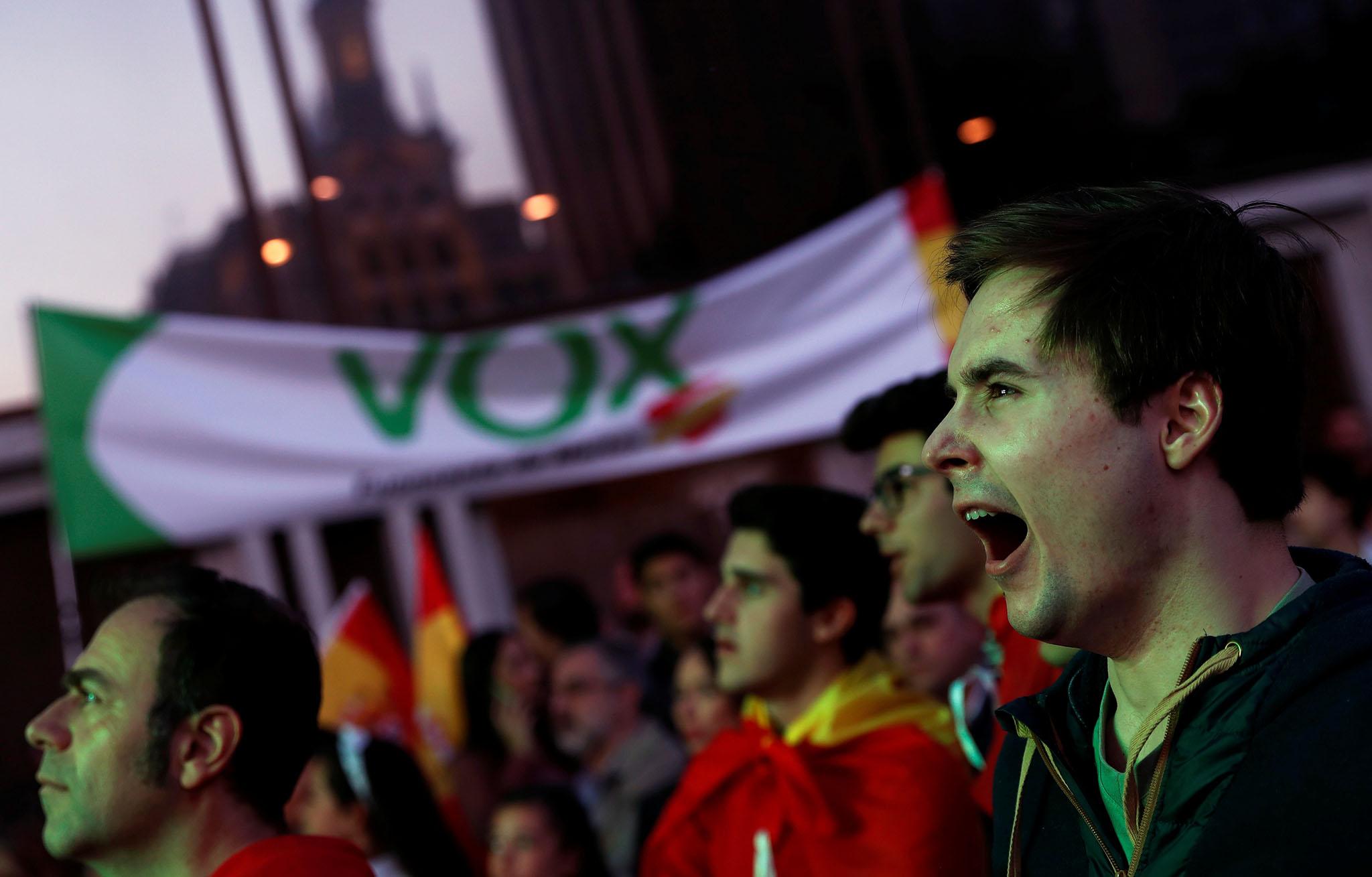Spain elections: Right-wing populists and Eurosceptics now represented in 23 out of 28 EU member states
Vox is the latest such party to get representation, this time in the Spanish parliament

The election of a far-right party to the Spanish parliament on Sunday means that 23 out of 28 EU member states now have right-wing populist, hard Eurosceptic, or far-right parties in their national parliaments.
Vox won 10.3 per cent of the vote in the Spanish general election and 24 seats in the Spanish national congress in elections on Sunday, falling short of the larger gains they had hoped for.
Ireland, Malta, Portugal, Romania and Croatia are the only countries without such parties – defined as being associated with the ENF, EFDD or ECR political groups.
Some countries also had unaffiliated parties associated with no particular group at an EU level, but which political scientists judge to be far-right: such as Hungary’s Jobbik, or Greece’s Golden Dawn.
Vox is the first far-right group to gain representation in Spain since the fall of the Franco regime – though observers say such politics has long been masked inside the right wing of its large conservative party, the Partido Popular.
Vox appears to have taken votes off the Partido Popular, which sunk to a historic low result. Although it rejects the far-right label, it has similarities with other such parties, including an anti-immigration focus.
The radical right is expected to do well at European parliament elections next month and make significant gains, with the latest official projection showing that they would be the largest political group if they united in a single alliance.
Splits and rivalries between the various parties, however, make such an eventuality unlikely, despite efforts by figures such as Italy’s Matteo Salvini and US campaigner Steve Bannon to bring them together.
Despite the likely gains for the far right, continent-wide it has little momentum. Vox scored a lower result than it did in the Andalusian regional elections last year, and most gains for the far-right parties appear to be simply catching up with changes in national parliaments that have emerged since the last EU elections in 2014.
In Germany, for instance, the far-right AfD is polling an average of around 12 per cent – slightly less than it won in national elections in 2017, where it made a breakthrough.
Other far-right parties have suffered bigger falls. The Danish People’s Party has been on a downward trend since winning 21 per cent of the vote in 2015 – it is now polling around 14 per cent, and has been overtaken in second place by the country’s centre-right liberals.
Despite the stagnation and in some cases falling away of such right-wing parties, the fact they can now be found in most parliaments across the EU suggests they may be here to stay – even if only in the margins.
Join our commenting forum
Join thought-provoking conversations, follow other Independent readers and see their replies
Comments
Bookmark popover
Removed from bookmarks